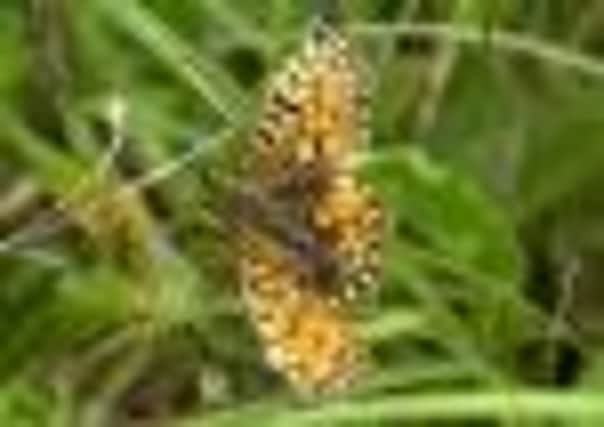Winners and losers in nature’s battle with the British weather


Many birds, bats, butterflies, bees, amphibians and wildflowers have been struggling in the cold wet conditions and the National Trust warns that the outlook for some species next year is bleak.
The Trust's conservation adviser Matthew Oates warns of local extinction of species of rare and isolated insects such as butterflies. Wet weather has hit the breeding attempts of a wide array of wildlife, with puffins drowned in their burrows, sea birds being blown off cliffs by gales and garden birds struggling to find enough food for their young.
Advertisement
Hide AdAdvertisement
Hide AdPuffins on the Farne Islands off the north-east coast, managed by the National Trust, have had a catastrophic breeding year, with 90 per cent of burrows lost on Brownsman Island and around half of burrows flooded on the other islands.
The cool conditions have also affected bats, in particular lesser and greater horseshoe bats, whose pregnancies will have slowed down.
Pups will be born underweight and will not get enough nutrition from their mothers to grow properly in preparation for hibernation.
Butterflies, bees, bumblebees, hoverflies and moths have all become scarce in the wet conditions.
Advertisement
Hide AdAdvertisement
Hide AdThe dry start to the year dried up pools for amphibians to breed in, and when the rain arrived in April it filled up ponds with water too cool for frogs, newts and toads.
"For many species prospects in 2013 are bleak. Our wildlife desperately needs some sustained sunshine, particularly beneficial insects. A good summer next year would also allow species such as insects which have been in decline after two bad years to begin to rebuild populations in areas from where they have been lost.
There have been some wildlife winners from the wettest April to June on record and the second dullest June ever recorded, but they are hardly Britain's most-loved species, with slugs and snails thriving in gardens.
Gardeners have also been battling to keep their fast- growing lawns mown, while bracken, nettles and brambles are all doing well in the countryside.
Advertisement
Hide AdAdvertisement
Hide AdThe wet weather has also been good for mosses and plants such as early gentian and bee orchids.
“A lot of wildlife runs back and forth between boom and bust,” says Oates. “Nature doesn’t really do ‘balance’, although it’s talked about a lot.
“Bad summers are nothing new in Britain, but nonetheless the impact on wildife, especially on winged insects and species that eat insects, is serious.
“For example, the shortage of caterpillars for small birds like blue tits and grey tits to feed to their young in early summer means that these birds give up and don’t breed.
Advertisement
Hide AdAdvertisement
Hide Ad“If such birds, which only have a lifespan of two or three years, don’t breed for a year then the effect on the population is huge. Larger birds like terns live for up to 20 years so it’s no great problem if they lose a breeding season.
“Wildlife and humans are in this together. If the bad spell persists and farmers can’t get machinery onto the sodden land to harvest then the knock-ons are very serious.”